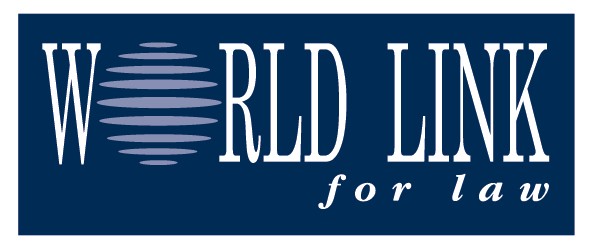Available | Disponible : French
During the Ninth International Meetings of the Institute of Mediation in the Francophone Space recently held in Montreal, Mr Paul Fauteux of CMKZ participated on August 16, 2017 in a session on “Mediation at the heart of the company: managing beliefs, rules, values and rituals”. In front of an audience of business and public administration officials, mediation practitioners and mediation trainers from Belgium, France and Quebec, speakers were invited to present practical cases and analysis grids for a dynamic reading of the raised issues to bring about change to organizational systems.
Mr Fauteux spoke about transformative mediation, an approach that provides a uniquely powerful experience for people in conflict because it relies on the power of human interaction to unleash people’s inherent potential empowerment and recognition (for more details on this approach, see the blog on “A Powerful Tool for Both Conflict Prevention and Resolution ” – link).
The case he presented was a mediation mandate entrusted to him by a public administration in Nunavik (Northern Quebec) because of his combined expertise in mediation and Aboriginal affairs. The origin of this mandate was the employer’s serious concerns about the anticipated return of an employee who had severely disrupted the workplace before going on an eight and half month sick leave. In addition to the difficulties inherent in coming back to work after such a long absence, there were also psychosocial risks and a strong intercultural dimension.
The conflict can be summarized as follows. In a maintenance team of nine workers and two managers, the main protagonists are a non-specialized middle-age Inuit worker, who we’ll call Perry, and a young plumber from the south who we’ll call Simon. Perry does not get along at all with Simon and develops resentment toward him that is often due to differences in working conditions between Inuit and non-Inuit. Simon’s work environment deteriorates rapidly, especially since Perry does not hesitate to complain about him to his aunt who is the Director General (DG) of the public administration in question.
Hostility between the two men intensifies when Perry denounces Simon and three other colleagues for misusing their food cargo allowance. Despite the fact that these four employees were told by their supervisor that it was not forbidden to sell the unused portion of this allowance, Perry’s aunt imposes severe penalties on them that they perceive as a crushing injustice.
The overall work environment continues to deteriorate, leading management to strip Perry of his team leader premium. The conflict with Simon reached its climax when Perry, once again, denounces him to the DG, accusing him this time of complicit with a pizzeria owner in drug trafficking. Simon learns about it and threatens Perry with a lawsuit for defamation. Hearing this threat, Perry feels an intense pain in the chest and collapses. Rushed to the hospital, the doctor tells him it was a stress attack but that it could possibly be a heart attack next time and puts him on extended sick leave.
After Perry’s departure, the work climate improves but his colleagues are worried about his return and afraid that “the circus will start again”. Inuit members of the team sign a letter to the DG threatening to all quit if Perry was given his role of team leader.
This was the context in which Mr Fauteux intervened. The first part of his intervention consisted of separate meetings with Perry and Simon, followed by a mediation session with the continuous presence of the parties that lasted nearly seven hours and at the end of which they asked him to make the following report:
“Despite [Simon’s] very great reluctance to participate in the mediation process, in which he had no faith, he and [Perry] had a meaningful discussion of all the issues between them and agreed on all item discussed. Both participants thought that the mediation was excellent and allowed to obtain the following benefits:
- a new perspective on events,
- a broader understanding of the situation,
- a new opinion from the other’s point of view, and
- a climate of respect that could enable future solutions.
Both participants attach great importance to full compliance with all the clauses of the Agreement to Mediate signed on September 2, 2016, in particular those concerning confidentiality. ”
A week after Perry’s return to work, Mr Fauteux spoke separately to the two team managers to ask how things were going. Both answered that everything was going remarkably well: Perry and Simon had even worked together and there had been no friction between them, which represented significant progress. Their boss even teased them about their “honeymoon” and had seen Perry emerge transformed from the mediation.
At a time when psychosocial risks in the workplace are increasingly affecting employer’s reputation, it makes sense to invest in a tool of such proven effectiveness to prevent disputes and resolve them when they arise. Moreover, as companies seek to limit their operating costs, including litigation exposure, transformative mediation provides the opportunity to determine for themselves how to settle both their commercial disputes and those that arise in the workplace, rather than handing over that power to a third party.
Paul Fauteux was, from 2004 to 2010, Director General of Lands at Indigenous and Northern Affairs Canada. He subsequently designed and conducted a research project on First Nations Development and Reserve Land. He trained in transformative mediation and now offers training with Joe Folger, co-founder of the Institute for the Study of Conflict Transformation, and acts as an external mediator for the Public Service Labor Relations and Employment Board of Canada. He teaches Mediation and Participative Justice at the Civil Law Section of Ottawa University’s Faculty of Law and International Commercial Arbitration at the Ecole du Barreau du Québec.

